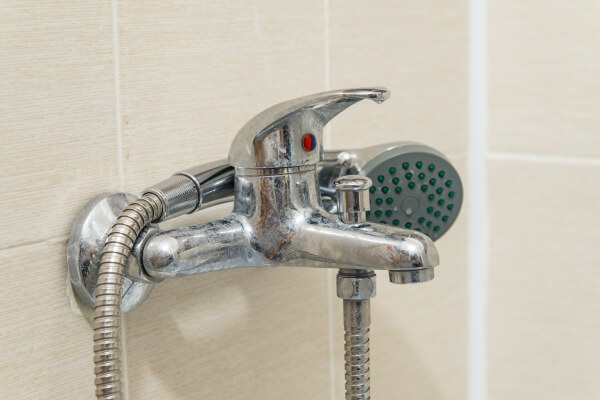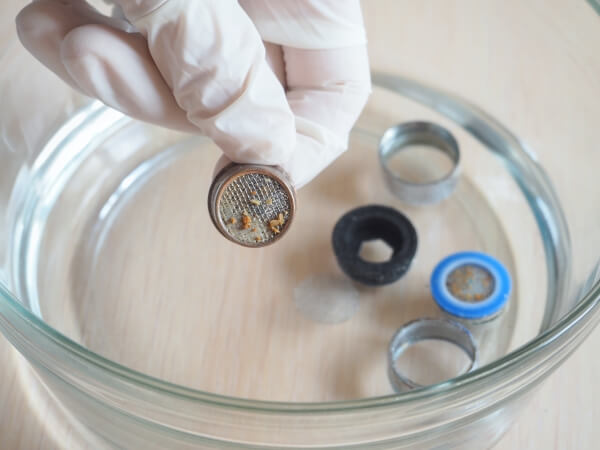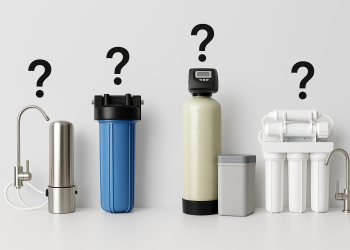Table of Contents
If you live in the US or almost anywhere in Europe, then there’s a high chance you’re dealing with the effects of hard water right now. From scummy bathtubs to soap no lathering properly and everything in between, water hardness seems to be the number one problem across the modern world.
Because of this, you might be interested in softening your water. If you haven’t heard about water softeners, reverse osmosis units, or water descalers up until this point, stick with us to find out all the necessary details so you can make an educated decision.
How Water Softeners Work
A traditional water softener works by exchanging calcium and magnesium ions with sodium ones in a process called ion exchange. The microscopic resin beads inside the cylinder trap calcium and magnesium while water passes through them, leaving the hardness behind.
Once the resin bed is full, the softener starts regenerating using sodium to detach the mineral build up from the resin. Depending on the type of softener you have, it might need to take a break until it can fully regenerate. Either way, you’re getting sodium flushed down the drain, so it’s a no-go if you want to stay salt-free.
How Water Descalers Work
Now we’re getting to the newer stuff, namely the technology that doesn’t use any salt to achieve just about the same great effects. Instead, these devices rely on emitting capacitive electronic signals throughout the pipes, thus applying the principles of cathodic protection and directly affecting hard minerals’ shape.
In layman’s terms, instead of replacing the minerals with sodium, it simply makes the crystals smaller and less sticky. This way, you’ll still get the benefits of drinking hard water without its associated downsides. Of course, depending on hardness levels, it might not be as effective as a traditional water softener, but you can at least drink the water without fear of a sodium overdose.
How Reverse Osmosis Works
A reverse osmosis system is one of the tried and tested ways of getting rid of hard water while also filtering out other contaminants as well. That’s the main advantage over both water softeners and water descalers – you won’t be needing a filter anymore unless we’re talking about a contaminant that can’t be removed through this process.
But alas, even RO systems come with disadvantages, the main one being that it tends to waste a lot of water. Yes, even more than a water softener. However, restaurants might prefer this over any other method because it purifies water completely, thus getting rid of any weird taste, which makes the food taste all that better.
Which One Should You Choose?
From this short presentation, you might have noticed that a water descaler, such as the one from https://www.yarna.com/ has the least disadvantages. However, we feel the need to reiterate that this device only works for hard water. It’s not supposed to replace a filter of any kind.
Before deciding on a final purchase, we recommend getting your water tested by a professional laboratory or, at the very least, by a DIY test kit. Make sure to test for all possible contaminants so that you’ll know both your hardness levels and what type of filter you should pair with the descaler.
Doing so will allow you to make an educated decision and spend your money carefully. Alternatively, you could opt for a reverse osmosis system, but be aware that it does waste a lot of water. if you want to go economical in the long run, pairing a descaler with a filter is your best option. We don’t recommend a water softener because you’ll be wasting a lot of money and time on salt, maintenance, and other amenities.
The Bottom Line
If you want to soften your water and finally get rid of those limescale deposits and nasty stains, then you’ve got a lot of viable options to choose from. Whichever one of these three devices you end up choosing, your hard water-related problems will fade away in no time.









